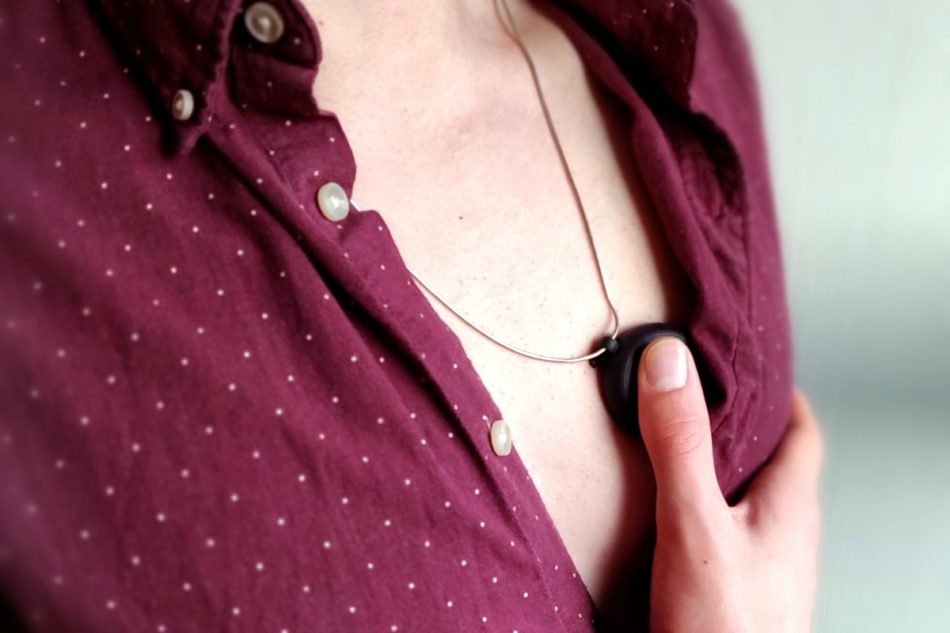One of the major causes of stroke is unrecognized and untreated atrial fibrillation, an abnormal heart rhythm, that causes approximately 25 percent of all strokes. An ingenious new necklace, however, could make checking for it a quick and simple process.
While it is the most common heart rhythm disturbance, atrial fibrillation is often symptomless and intermittent, making its detection and diagnosis challenging. The innovative necklace is designed to solve this problem with the help of an ECG (electrocardiogram) embedded into its pendulum.
To measure their heart rhythm, users start an application on their smartphone then place the necklace pendant between the palms of their hands or between the palm and the chest for 30 seconds.
Data is then automatically sent to a cloud service and analyzed for atrial fibrillation using artificial intelligence (AI). Within a few seconds, the smartphone application displays the results of the analysis, while also generating an ECG report for physicians to confirm the diagnosis.
By evaluating the technology on 145 adults, the researchers found that, when compared to other ‘gold standard’ ECG technology, the necklace’s ECG recordings also reported excellent accuracy in detecting and diagnosing atrial fibrillation.
Given the positive results and the fact that the necklace test can be performed by the wearer at any place and at any time, the innovative gadget is likely to be soon recommended to people with a high risk of stroke as an essential wearable.










